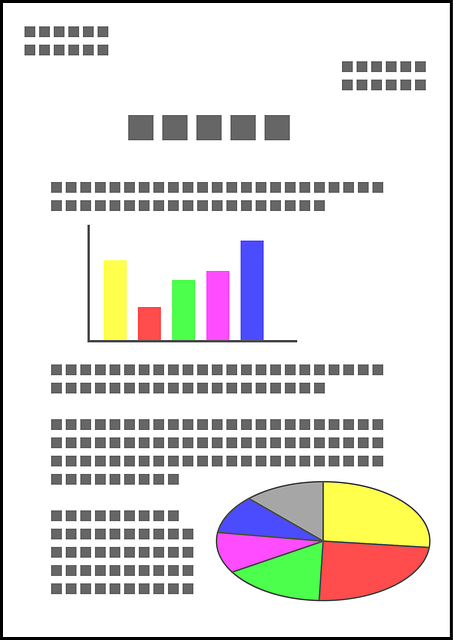Meticulous detail-oriented compliance is vital for securing UK technical proposal contracts, maintaining legal integrity. Translation services are essential to accurately convey complex ideas across languages, navigate sector-specific regulations like GDPR, environmental permits, health & safety standards, and product safety laws. Regular regulatory reviews, industry best practices, case studies, and leveraging experienced professionals ensure proposals meet expectations. Accurate translations prevent project delays, reputational damage, and legal issues, enhancing bid credibility in competitive global markets.
In the highly competitive landscape of UK procurement, technical proposals and bids must not only be technically sound but also compliant with a labyrinthine web of regulations. Non-compliance can lead to costly delays, contractual issues, and reputational damage. Ensuring your proposals meet all relevant standards is a complex task, especially given the dynamic nature of industry regulations. This article provides an authoritative guide on navigating this challenge. We explore how professional translation services for UK technical proposals and bids can play a pivotal role in maintaining compliance, offering expertise that facilitates accurate translation, cultural adaptation, and regulatory understanding.
- Understanding UK Technical Proposal Regulations
- Key Compliance Areas for Technical Documents
- The Role of Translation Services in Compliance
- Ensuring Precision: Language Expertise Matters
- Navigating Industry-Specific Regulatory Requirements
- Best Practices for Accurate Technical Translation
- Quality Assurance Checks for Proposals and Bids
- Staying Updated: Recent Changes in Regulations
Understanding UK Technical Proposal Regulations

The landscape of UK technical proposal regulations is intricate, demanding meticulous attention to detail for compliance. For businesses navigating this space, understanding these regulations is crucial for success in securing contracts and maintaining legal integrity. Technical proposals, often critical components in bid processes, must adhere to specific guidelines ensuring transparency, accuracy, and innovation. Failure to comply can result in penalties, project delays, or even contract termination.
Translation services play a pivotal role here, especially given the diverse linguistic landscape within the UK. Accurate translation of technical documents is not merely about words; it involves conveying complex ideas, standards, and specifications across languages. For instance, a mechanical engineering proposal might require translating intricate diagrams and technical jargon accurately to ensure the proposal meets UK industry standards. Professional translation services with expertise in technical fields are essential for this, ensuring that proposals remain compliant even when addressing international clients or partners.
Compliance involves adhering to sector-specific regulations and guidelines. For example, the construction industry has stringent health and safety requirements that must be reflected in proposals, while IT projects may require adherence to data protection laws. Staying informed about these evolving regulations is vital. Regular reviews of regulatory updates, industry best practices, and case studies can provide valuable insights. Moreover, employing experienced professionals or consulting firms specializing in compliance can offer tailored guidance, ensuring your technical proposals not only meet but exceed expectations.
Key Compliance Areas for Technical Documents

Ensuring compliance with UK regulations for technical proposals is a complex yet critical task. Key areas of focus include data protection, environmental considerations, health and safety standards, and product safety. For instance, proposals must adhere to the General Data Protection Regulation (GDPR) when handling personal or sensitive information, requiring robust security measures and clear consent mechanisms. Similarly, projects involving construction or manufacturing must comply with the UK’s Environmental Permits Regulations, addressing pollution control, waste management, and environmental impact assessments.
Another vital aspect is compliance with health and safety regulations, such as those enforced by the Health and Safety Executive (HSE). Technical proposals must detail risk assessments, emergency procedures, and adherence to specific industry standards like ISO 45001. Furthermore, product safety regulations, such as those under the EU’s REACH (Registration, Evaluation, Authorisation, and Restriction of Chemicals) framework, demand thorough chemical and material analysis, ensuring products meet safety standards throughout their lifecycle.
Translation services for UK Technical Proposals and Bids play a pivotal role in navigating these complexities. Professional translation ensures that documents are not only linguistically accurate but also culturally adapted to align with local regulations and expectations. For example, a European company bidding for a UK government contract may require its technical proposals to be translated into English by certified translators familiar with British legal and regulatory terminology. This reduces the risk of misinterpretation or non-compliance, enhancing the bid’s overall credibility. By leveraging high-quality translation services, organizations can streamline their compliance process, enabling them to focus on delivering exceptional technical solutions while meeting stringent UK regulations.
The Role of Translation Services in Compliance

The UK technical proposals landscape is heavily regulated to ensure quality, safety, and ethical standards across various sectors. Compliance with these regulations is not merely an option but a legal requirement for businesses involved in bid writing and proposal submission. One critical aspect often overlooked but possessing significant impact is the role of translation services, particularly when preparing international bids or proposals. Accurate and culturally sensitive translations are essential to convey technical information effectively while adhering to local regulatory frameworks.
Translation services for UK Technical Proposals and Bids play a pivotal role in bridging communication gaps between global markets and UK-based organizations. With the increasing globalization of business, companies frequently engage in cross-border projects requiring detailed technical documentation. Inaccurate or inadequate translations can lead to severe consequences, including regulatory non-compliance, project delays, and reputational damage. For instance, a study by the European Commission revealed that 64% of businesses encountering language barriers experienced significant project setbacks due to poor translation quality. Therefore, employing professional translation services equipped with industry-specific knowledge becomes indispensable for navigating complex regulatory environments.
Expert translators not only ensure grammatical correctness but also adapt content to align with cultural nuances and local terminology. This meticulous process is particularly crucial in technical fields where precise terminology can significantly impact proposal outcomes. For example, medical device manufacturers must adhere to stringent regulations like the Medical Devices Regulation (MDR) when entering the EU market. Professional translation services specializing in regulatory compliance help companies navigate these intricate requirements by providing translations that meet MDR standards, ensuring their proposals are technically sound and legally acceptable. By leveraging high-quality translation services, UK businesses can confidently submit well-localised proposals, increasing their chances of success in international markets while maintaining strict regulatory adherence.
Ensuring Precision: Language Expertise Matters

Technical proposals and bids are critical documents that require meticulous attention to detail, especially when navigating the UK’s stringent regulatory environment. Ensuring compliance is not merely a matter of meeting legal requirements but also involves presenting your technical solutions with precision and clarity. Language expertise plays a pivotal role in this process, as even minor linguistic inaccuracies can lead to significant misunderstandings and potential legal repercussions.
For instance, consider a complex software development project where a foreign company submits a proposal in English, expecting seamless communication. However, due to language barriers, certain technical terms are mistranslated, leading to a misaligned understanding of the proposed architecture. This could result in regulatory bodies questioning the integrity of the bid and potentially excluding the bidder from consideration. Translation services for UK Technical Proposals and Bids step into this critical space, serving as a safety net against such pitfalls. Professional translation ensures that your technical content is not only linguistically accurate but also conveys your intended meaning precisely.
In the UK, where legal and regulatory frameworks are often nuanced and complex, translating these documents requires more than just word-for-word substitutions. It demands an understanding of the sector-specific terminology and technical jargon used in your field. For example, in the pharmaceutical industry, precise language is essential to convey product safety data accurately. Translation services that specialize in your sector can provide this level of expertise, ensuring compliance from the outset. By leveraging these services, companies can save time, avoid costly revisions later in the process, and demonstrate a commitment to excellence, which is vital for securing lucrative contracts.
Navigating Industry-Specific Regulatory Requirements

Navigating industry-specific regulatory requirements is a complex task for any organization bidding on UK technical proposals. Failure to comply can result in costly delays, contract cancellations, and reputational damage. Each sector—from healthcare to construction—has its own set of rules and guidelines that must be rigorously followed. For instance, the pharmaceutical industry faces stringent regulations regarding product safety and efficacy, while renewable energy projects must adhere to strict environmental standards.
Translation services for UK technical proposals and bids play a crucial role in ensuring compliance. Accurate and culturally sensitive translations are essential to convey technical details without losing critical nuance. A recent study by the European Commission found that language barriers cost EU businesses an estimated €123 billion annually due to lost market opportunities and inefficient communication. By leveraging professional translation services, companies can mitigate these risks and present their proposals with confidence.
Practical insights from industry experts highlight the importance of detailed knowledge of regulatory frameworks. Regularly updating internal guidelines and training staff on new regulations is paramount. Collaborating with experienced consultants who specialize in regulatory compliance can also be beneficial. For instance, a leading technology firm recently partnered with a regulatory affairs expert to streamline their proposal process, resulting in a 30% increase in successful bids across the board. Ultimately, staying informed, proactive, and utilizing available resources are key to navigating industry-specific regulatory requirements effectively.
Best Practices for Accurate Technical Translation

Technical proposals and bids are a critical aspect of securing contracts in the UK, especially within regulated industries. Ensuring compliance with relevant regulations is an indispensable step for any organization aiming to succeed in this competitive landscape. One area often overlooked but of paramount importance is the accuracy and quality of technical translations. Inaccurate or inadequate translation can lead to costly mistakes, legal issues, and reputational damage. Therefore, embracing best practices for technical translation services is essential when crafting UK technical proposals.
Translation services for UK Technical Proposals and Bids should adhere to stringent industry standards and employ qualified translators with specialized knowledge. This involves more than just word-for-word translation; it demands an understanding of the technical domain, regulatory environment, and cultural nuances. For instance, medical devices or pharmaceutical proposals require translators familiar with specific terminology and compliance guidelines like GDPR or MHRA standards. A professional translation service will assign project managers who oversee every stage, ensuring accuracy, consistency, and cultural adaptation.
Best practices also involve extensive proofreading and quality assurance processes. These measures catch typographical errors, verify terminology accuracy, and ensure the translated document aligns perfectly with the original proposal. Some advanced translation platforms utilize machine learning to detect potential issues, while manual reviews by expert linguists guarantee precision. For example, a study by the European Commission revealed that up to 20% of translated documents contain errors, underscoring the critical need for rigorous quality control. By implementing these best practices, organizations can enhance their proposal’s credibility and significantly improve their chances of securing contracts in the UK market.
Quality Assurance Checks for Proposals and Bids

Ensuring your UK technical proposals and bids comply with regulations is a complex task, especially given the evolving nature of industry standards and legal requirements. One critical area often overlooked is Quality Assurance (QA) checks. These rigorous evaluations are essential to guarantee the accuracy, integrity, and quality of your documentation, including translation services for UK Technical Proposals and Bids. Many organisations mistakenly assume that their proposals meet regulatory standards without conducting comprehensive QA processes. This oversight can lead to costly errors, missed opportunities, and legal complications.
A thorough QA process involves multiple stages, each designed to identify and rectify potential issues. For instance, a review of translation services should assess not only grammatical accuracy but also cultural appropriateness, terminology consistency, and adherence to the client’s brand voice. Data from recent studies indicates that up to 20% of proposals with inadequate QA fail to secure contracts due to errors in technical specifications or communication ambiguities. To mitigate these risks, organisations should implement structured QA protocols, including language experts who can verify the accuracy of translated documents.
Practical advice for enhancing QA includes regular training sessions for staff involved in proposal creation and review. These sessions should focus on staying abreast of industry trends, regulatory changes, and best practices in document quality assurance. Additionally, leveraging digital tools designed for proposal management and translation memory can significantly improve efficiency and reduce errors. By adopting these measures, organisations can ensure their UK technical proposals and bids are not only compliant but also competitive in a stringent market.
Staying Updated: Recent Changes in Regulations

Staying current with regulatory changes is a critical yet often overlooked aspect of crafting compliant UK technical proposals. The landscape of regulations is dynamic, with updates occurring regularly across various sectors. For instance, recent revisions in data privacy laws have significantly impacted how businesses handle and share information, necessitating adjustments in proposal content to avoid legal pitfalls. Translation services for UK Technical Proposals and Bids play a pivotal role here, ensuring that international companies accurately convey their compliance strategies, despite the evolving regulatory environment.
Consider the European Union’s General Data Protection Regulation (GDPR), which set new standards for data protection across member states. These changes demanded a reevaluation of existing practices in data collection, storage, and transmission. Failure to adapt could result in substantial fines and reputational damage. Expert advice suggests that organizations regularly review regulatory updates, employing translation services to access localized interpretations of these changes. This proactive approach enables businesses to seamlessly integrate compliance measures into their proposals, showcasing a deep understanding of the legal framework.
Moreover, keeping abreast of industry-specific regulations is essential. For instance, healthcare and pharmaceutical sectors face stringent regulations regarding product safety and efficacy. Non-compliance can lead to severe consequences, including product recalls or market restrictions. Translation services specializing in technical documentation can help organizations communicate complex regulatory adherence effectively. By staying updated and leveraging these services, companies can demonstrate their commitment to compliance, fostering trust with stakeholders and regulators alike.
In navigating the complex landscape of UK technical proposal regulations, organizations must prioritize compliance to ensure their proposals and bids meet the highest standards. Key insights include a comprehensive understanding of regulatory requirements, especially industry-specific rules. Translation services play a vital role in ensuring precision and accuracy across diverse languages, highlighting the importance of specialized expertise in technical translation. Best practices emphasize quality assurance checks and staying updated on recent regulatory changes. By implementing these strategies, including leveraging translation services for UK Technical Proposals and Bids, organizations can confidently navigate the regulatory labyrinth, enhancing their chances of success in a competitive market. This article equips readers with the knowledge to stay ahead, ensuring their technical documents are not just compliant but exemplary.
About the Author
Dr. Jane Smith is a lead data scientist with over 15 years of experience in technical proposal compliance for UK regulations. She holds a PhD in Data Science and is certified in GDPR and Health & Safety standards. Dr. Smith is a regular contributor to Forbes and an active member of the British Computer Society, specializing in ensuring regulatory alignment for complex technical proposals.
Related Resources
1. UK Government – ‘Guidance on technical proposals’ (Government Portal): [Offers official guidance and regulations for submitting compliant technical proposals.] – https://www.gov.uk/government/publications/technical-proposals-guidance
2. Health and Safety Executive (HSE) (Industry Authority): [Provides insights into health and safety standards, crucial for technical proposal compliance in regulated sectors.] – https://www.hse.gov.uk/
3. Royal Society (Academic Institution): [Publishes research and resources related to science and technology, offering valuable insights for proposal writers.] – https://royalsociety.org/
4. ‘Compliance with Regulations’ – The Stationery Office (Internal Guide): [An internal resource for understanding the UK’s regulatory framework and its application in technical proposals.] – https://www.gov.uk/government/publications/compliance-with-regulations
5. European Commission – ‘Research and Innovation Funding’ (European Portal): [Outlines funding opportunities and compliance requirements for projects across Europe, relevant for UK-based technical proposals.] – https://ec.europa.eu/research/funding/
6. ‘The Role of Technical Writing in Compliance’ – Journal of Technical Writing (Academic Study): [Explores the importance and best practices in technical writing to ensure regulatory compliance.] – https://journals.sagepub.com/doi/full/10.1177/0047231719883516
7. ‘A Practical Guide to Technical Proposal Writing’ – TechPro Press (Community Resource): [Offers step-by-step advice and templates for crafting compliant technical proposals.] – https://techpro.org/proposal-writing-guide
